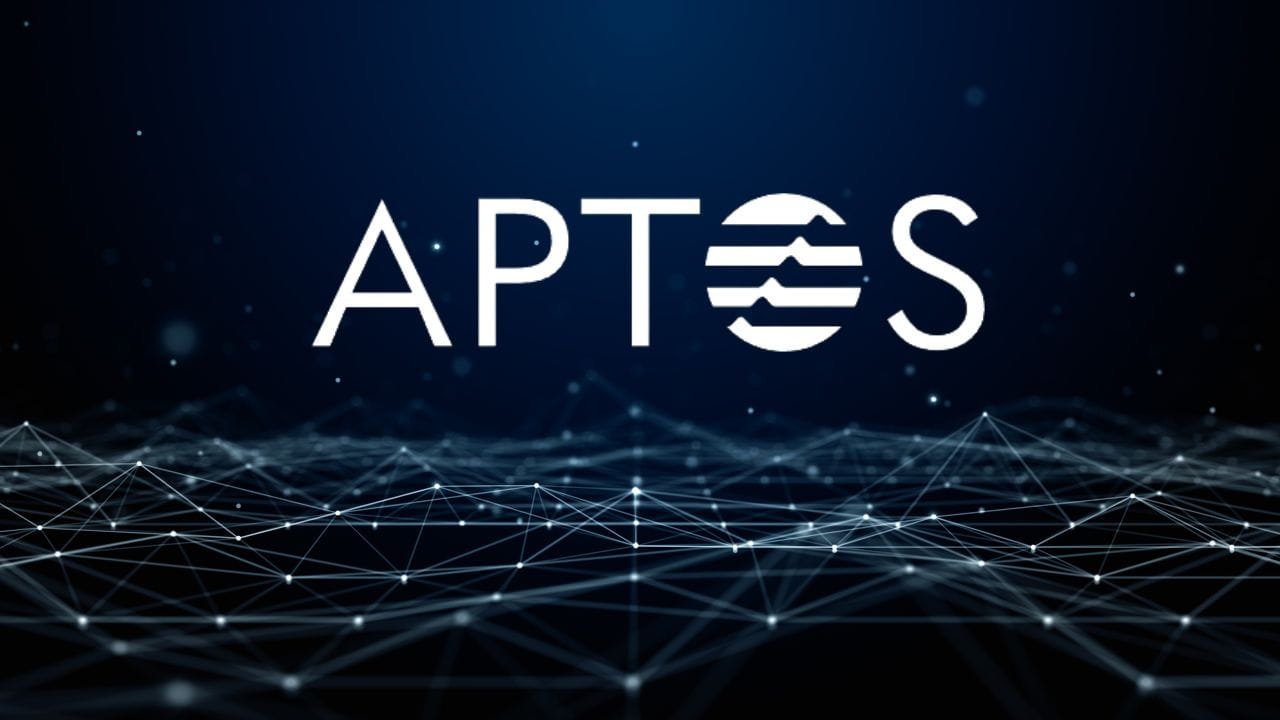
Crypto payroll for startups has emerged as a game-changing solution that’s reshaping how emerging businesses manage their workforce compensation. Aptos, a cutting-edge blockchain platform, is leading this transformation by offering unprecedented speed, security, and cost-effectiveness in payroll processing. As traditional payroll systems struggle with cross-border payments, high fees, and lengthy processing times, crypto payroll for startups provides an innovative alternative that addresses these fundamental challenges while opening doors to a global talent pool.
In today’s competitive business environment, startups need every advantage they can get. The integration of crypto payroll for startups through Aptos blockchain technology represents more than just a payment method—it’s a strategic move that can significantly impact a company’s operational efficiency, talent acquisition capabilities, and overall financial health. This comprehensive guide examines how Aptos is transforming the payroll landscape and why forward-thinking startups are embracing this technology to stay ahead of the curve.
Crypto Payroll and Its Revolutionary Impact on Startups
Crypto payroll for startups represents a paradigm shift from traditional payment methods to blockchain-based compensation systems. Unlike conventional payroll that relies on banks and financial intermediaries, crypto payroll utilizes decentralized networks to process payments directly between employers and employees. This approach eliminates many of the friction points associated with traditional payroll systems, particularly for startups operating in the global marketplace.
The concept extends beyond simply paying employees in cryptocurrency. Modern crypto payroll for startups encompasses comprehensive payroll management systems that handle tax calculations, compliance requirements, benefits administration, and reporting—all while leveraging the inherent advantages of blockchain technology. These systems provide real-time transparency, immutable transaction records, and significantly reduced processing times compared to traditional banking systems.
The Evolution of Payroll in the Digital Age
Traditional payroll systems were designed for a different era—one where businesses primarily operated within single jurisdictions and employee mobility was limited. Today’s startup ecosystem is fundamentally different. Companies routinely hire talent from across the globe, operate in multiple time zones, and require payment systems that can adapt to rapidly changing business needs. Crypto payroll for startups addresses these modern requirements by providing a unified payment infrastructure that transcends geographical boundaries.
The shift toward digital-first operations, accelerated by the rise of remote work, has highlighted the limitations of legacy payroll systems. Processing international payments through traditional banking channels can take days or weeks, incur substantial fees, and require complex compliance procedures. In contrast, crypto payroll for startups enables near-instantaneous payments at a fraction of the cost, making it an attractive solution for agile businesses that need to move quickly and efficiently.
How Aptos is Transforming Crypto Payroll for Startups
Aptos has positioned itself as a leader in the crypto payroll for startups space by addressing the core challenges that have historically prevented widespread adoption of blockchain-based payment systems. The platform combines high-performance blockchain technology with user-friendly interfaces and comprehensive payroll management tools, creating an ecosystem that rivals traditional payroll providers in functionality while surpassing them in efficiency and cost-effectiveness.
Advanced Blockchain Architecture for Payroll Processing
The Aptos blockchain utilizes a unique consensus mechanism and smart contract architecture specifically designed for high-throughput financial applications. This technological foundation enables crypto payroll for startups to process thousands of transactions per second while maintaining the security and decentralization that make blockchain technology attractive. The platform’s ability to handle complex payroll calculations and execute multiple payment transactions simultaneously makes it particularly suitable for growing startups with dynamic workforce needs.
Smart contracts on the Aptos platform automate many of the manual processes associated with traditional payroll. These contracts can automatically calculate salaries, deduct taxes, process benefits contributions, and distribute payments according to predetermined schedules. This automation reduces the administrative burden on startup founders and HR teams while minimizing the risk of human error in payroll calculations.
Integration with Existing Business Systems
One of the key advantages of Aptos’ approach to crypto payroll for startups is its ability to integrate seamlessly with existing business management systems. The platform offers APIs and tools that enable startups to integrate their crypto payroll solution with accounting software, HR management systems, and compliance tools. This integration capability ensures that adopting crypto payroll for startups doesn’t require a complete overhaul of existing business processes.
The platform also supports hybrid payroll models where employees can choose to receive portions of their compensation in traditional currency and portions in cryptocurrency. This flexibility is particularly valuable for startups that are transitioning to crypto payroll or operating in jurisdictions with varying regulatory requirements for cryptocurrency payments.
Key Benefits of Implementing Crypto Payroll for Startups
The adoption of crypto payroll for startups through platforms like Aptos offers numerous advantages that can significantly impact a company’s operational efficiency and competitive positioning. These benefits extend beyond simple cost savings to encompass strategic advantages in talent acquisition, cash flow management, and global expansion capabilities.
Cost Reduction and Financial Efficiency
Traditional payroll processing involves multiple intermediaries, each adding fees and processing delays to the payment chain. International payments are particularly expensive, with banks typically charging 3-7% in fees plus exchange rate markups. Crypto payroll for startups eliminates most of these intermediaries, reducing transaction costs to a fraction of traditional methods. For startups operating on tight budgets, these savings can be substantial and have a direct impact on profitability.
Beyond transaction fees, crypto payroll for startups reduces administrative costs by automating many manual processes. HR teams spend less time on payment processing, reconciliation, and compliance reporting, allowing them to focus on strategic initiatives that drive business growth. The transparency inherent in blockchain transactions also simplifies auditing processes and reduces the time and cost associated with financial reporting.
Also, More: Bitcoin News Today: Latest Cryptocurrency Updates
Enhanced Speed and Reliability
Payment processing speed is a crucial factor for startups, especially those with remote employees who rely on timely compensation. Traditional international wire transfers can take 3-5 business days or longer, while crypto payroll for startups enables near-instantaneous payments regardless of geographical location. This speed improvement enhances employee satisfaction and can be a competitive advantage in attracting top talent.
The reliability of blockchain networks also surpasses traditional banking systems in many cases. While banks may experience downtime, processing delays, or system failures, crypto payroll for startups operates on decentralized networks that maintain high availability and consistently process transactions. This reliability is particularly important for startups that cannot afford payroll disruptions that might impact employee retention or business operations.
Access to Global Talent Through Crypto Payroll
One of the most significant advantages of crypto payroll for startups is the ability to hire and compensate talent from anywhere in the world without the traditional barriers associated with international payments. This global accessibility opens up talent pools that were previously difficult or expensive to access, giving startups a competitive advantage in building world-class teams.
Overcoming Banking and Regulatory Barriers
Many talented professionals in emerging markets face significant challenges receiving international payments through traditional banking systems. Local banks may not offer efficient international wire transfer services, or regulatory restrictions may limit access to foreign currency. Crypto payroll for startups bypasses these limitations by providing direct access to digital assets that can be easily converted to local currency or used for international transactions.
For startups, this means access to skilled developers, designers, marketers, and other professionals in regions where talent costs are lower but quality is high. The ability to efficiently compensate global talent can significantly reduce operational costs while maintaining or improving the quality of work output.
Simplified Compliance and Documentation
While cryptocurrency regulations vary by jurisdiction, crypto payroll platforms for startups, such as Aptos, provide tools to help manage compliance requirements across multiple regions. These platforms can automatically generate necessary tax documents, track payment histories, and provide audit trails that satisfy regulatory requirements in most jurisdictions. This automated compliance management reduces the complexity of managing international employees and contractors.
The transparency of blockchain transactions also provides superior documentation compared to traditional payment methods. Every payment is recorded on an immutable ledger, creating a permanent record that can be easily accessed for tax reporting, auditing, or legal purposes. This level of documentation transparency is particularly valuable for startups that may undergo investor due diligence or regulatory scrutiny.
Technical Implementation and Security Features
The successful implementation of crypto payroll for startups requires robust technical infrastructure and comprehensive security measures. Aptos addresses these requirements through advanced blockchain technology, sophisticated security protocols, and user-friendly implementation tools that make adoption accessible even for startups without extensive technical expertise.
Multi-Layer Security Architecture
Security is paramount in any payroll system, but crypto payroll for startups requires additional considerations due to the irreversible nature of blockchain transactions. Aptos implements multiple layers of security, including advanced encryption, multi-signature wallets, and smart contract auditing, to protect against various types of attacks and vulnerabilities.
The platform utilizes hardware security modules and cold storage solutions to protect private keys and sensitive data. Smart contracts undergo rigorous testing and third-party auditing to identify and address potential vulnerabilities before deployment. These security measures provide startups with confidence that their payroll operations are protected against both external attacks and internal errors.
User Experience and Interface Design
Despite the underlying complexity of blockchain technology, successful crypto payroll for startups platforms must provide intuitive user experiences that don’t require technical expertise from end users. Aptos has invested heavily in user interface design and user experience optimization to ensure that both employers and employees can easily navigate the system and complete payroll-related tasks.
The platform offers mobile applications, web interfaces, and API integrations that cater to diverse user preferences and technical requirements. Employees can view their payment history, access tax documents, and manage their cryptocurrency holdings through simple, familiar interfaces that abstract away the complexity of blockchain operations.
Regulatory Compliance and Legal Considerations
The regulatory landscape for crypto payroll for startups is complex and rapidly evolving, with different jurisdictions taking varying approaches to cryptocurrency taxation, employment law, and financial regulations. Successful implementation requires careful attention to compliance requirements and proactive management of legal risks.
Tax Implications and Reporting Requirements
Crypto payroll for startups creates unique tax implications for both employers and employees. In most jurisdictions, cryptocurrency payments are treated as taxable income at the time of receipt, with the value determined by the fair market value of the cryptocurrency at the time of payment. Employers must typically withhold taxes and provide appropriate tax documentation, just as with traditional payroll.
Aptos provides tools to help manage these tax obligations, including automatic tax calculations, withholding capabilities, and the generation of necessary tax forms. The platform integrates with tax compliance services and accounting software to streamline the reporting process and ensure accuracy in tax calculations and filings.
Employment Law Considerations
Employment laws in many jurisdictions have not yet fully adapted to accommodate crypto payroll for startups, creating potential compliance challenges. Issues such as minimum wage requirements, overtime calculations, and benefits administration may require special consideration when implementing cryptocurrency-based compensation systems.
Startups implementing crypto payroll for startups should consult with legal counsel familiar with both employment law and cryptocurrency regulations to ensure full compliance with applicable requirements. Some jurisdictions may require employee consent for cryptocurrency payments, while others may have restrictions on the types of work that can be compensated with digital assets.
Case Studies: Successful Implementation of Crypto Payroll
Real-world examples of cryptocurrency payroll for startup implementations provide valuable insights into the practical benefits and challenges associated with adopting blockchain-based payment systems. These case studies demonstrate how various types of startups have successfully leveraged Aptos and similar platforms to enhance their operations and improve their competitive positioning.
Technology Startup Success Story
A software development startup with employees across six countries implemented crypto payroll for startups using Aptos to address the high costs and delays associated with international payments. Before adoption, the company was spending approximately $200 per employee per month on international wire transfer fees and experiencing payment delays that negatively impacted employee satisfaction.
After implementing the crypto payroll solution, the startup reduced its payment processing costs by 85% and eliminated payment delays. Employee satisfaction scores improved significantly, and the company was able to attract additional international talent by offering competitive compensation packages without the traditional barriers associated with cross-border payments. The automated compliance features also reduced the administrative burden on the HR team by approximately 60%.
Remote-First Startup Transformation
A marketing agency startup that operated entirely with remote employees used crypto payroll for startups to create a competitive advantage in talent acquisition. By offering cryptocurrency compensation options, the company was able to attract skilled professionals who preferred the flexibility and investment potential of digital asset payments.
The startup reported a 40% increase in qualified job applications following the announcement of its crypto payroll capabilities. Employee retention also improved, with several team members citing the innovative payment options as a factor in their decision to remain with the company. The ability to offer equity-like participation through cryptocurrency bonuses created additional alignment between employee and company interests.
Future Trends and Developments in Crypto Payroll
The crypto payroll for startups sector continues to evolve rapidly, with new technologies, regulatory developments, and market trends shaping the future of blockchain-based compensation systems. Understanding these trends is crucial for startups considering adoption or looking to maximize the benefits of their existing crypto payroll implementations.
Integration with Decentralized Finance (DeFi)
The convergence of crypto payroll for startups with decentralized finance protocols is creating new opportunities for enhanced employee benefits and compensation structures. Startups are beginning to integrate yield farming, staking rewards, and automated investment features into their payroll systems, allowing employees to earn passive income on their cryptocurrency compensation.
These DeFi integrations can provide employees with financial services that surpass traditional banking offerings, including high-yield savings accounts, automated investment portfolios, and instant access to lending services. For startups, offering these enhanced financial services can be a significant competitive advantage in attracting and retaining top talent.
Regulatory Clarity and Standardization
As governments worldwide develop clearer regulatory frameworks for cryptocurrency use in employment contexts, crypto payroll for startups is likely to become more mainstream and accessible. Regulatory clarity will reduce compliance risks and implementation barriers, making blockchain-based payroll solutions attractive to a broader range of businesses.
The development of standardized protocols and interoperability standards will also enhance the ecosystem, enabling different crypto payroll platforms to collaborate and providing businesses with greater flexibility in selecting and implementing solutions that meet their specific needs.
Implementation Strategy and Best Practices
Successfully implementing crypto payroll for startups requires careful planning, stakeholder engagement, and attention to both technical and human factors. Startups should approach implementation systematically to maximize benefits while minimizing risks and disruption to existing operations.
Phased Implementation Approach
Rather than switching entirely to crypto payroll for startups immediately, most successful implementations use a phased approach that gradually introduces cryptocurrency payments while maintaining traditional payroll options. This approach allows employees to adapt to the new system, provides opportunities to identify and address issues, and reduces the risk of payroll disruptions.
The initial phase typically involves offering cryptocurrency payments as an optional supplement to traditional compensation, allowing employees to choose the percentage of their salary they wish to receive in digital assets. Subsequent phases can expand the crypto payroll capabilities and eventually transition to a primarily cryptocurrency-based system if desired.
Employee Education and Support
The success of crypto payroll for startups implementation depends heavily on employee understanding and acceptance of the new system. Comprehensive education programs should cover the basics of cryptocurrency, the specific features of the chosen platform, tax implications, and best practices for managing digital assets in terms of security.
Ongoing support is equally important, with dedicated resources available to help employees navigate the system, resolve issues, and optimize their use of cryptocurrency compensation. Regular training sessions, documentation updates, and feedback collection can ensure that the crypto payroll system continues to meet employee needs and expectations.
Cost-Benefit Analysis for Startups
Before implementing crypto payroll for startups, businesses should conduct thorough cost-benefit analyses that consider both quantitative and qualitative factors. While the financial benefits are often substantial, the strategic advantages and potential risks must also be carefully evaluated.
Direct Cost Savings
The most immediately measurable benefits of crypto payroll for startups are the direct cost savings associated with payment processing. Traditional payroll services typically charge 2-5% of total payroll for international payments, plus additional fees for currency conversion, compliance services, and administrative support. Crypto payroll solutions typically charge flat fees or small percentages, resulting in significant savings, particularly for startups with international employees.
Administrative cost savings are equally important but sometimes less obvious. The automation capabilities of crypto payroll for startups can reduce the time HR teams spend on payroll processing by 50-70%, allowing these resources to be redirected toward strategic initiatives that drive business growth.
Strategic Advantages and ROI
Beyond direct cost savings, crypto payroll for startups provides strategic advantages that can significantly impact long-term business success. Access to global talent pools, improved employee satisfaction, enhanced cash flow management, and competitive positioning in the technology sector all contribute to return on investment in ways that may not be immediately quantifiable but are nonetheless valuable.
The ability to offer innovative compensation packages can be particularly valuable for startups competing for skilled technical talent. In competitive job markets, unique benefits and forward-thinking approaches to compensation can be deciding factors for candidates choosing between multiple opportunities.
Risk Management and Mitigation Strategies
While crypto payroll for startups offers substantial benefits, it also introduces new types of risks that must be carefully managed. Successful implementation requires a comprehensive risk assessment and the development of mitigation strategies that address both technical and business risks.
Cryptocurrency Volatility Management
Price volatility is one of the most significant challenges associated with crypto payroll for startups. Employees may be concerned about receiving compensation in assets that can fluctuate significantly in value, while employers must manage the accounting and budgeting implications of volatile payment values.
Several strategies can help mitigate volatility risks, including the use of stablecoins for salary payments, automatic conversion features that allow immediate conversion to fiat currency, and hedging mechanisms that protect against adverse price movements. Some platforms also offer volatility insurance or guaranteed conversion rates for specific time periods.
Security Risk Management
The security risks associated with crypto payroll for startups require specialized knowledge and management approaches. Unlike traditional banking systems that provide fraud protection and transaction reversal capabilities, cryptocurrency transactions are generally irreversible, making security breaches potentially more costly.
Comprehensive security protocols should include multi-signature wallet requirements, hardware security modules for key storage, regular security audits, employee training on phishing and social engineering attacks, and incident response procedures for potential security breaches. Insurance coverage for cryptocurrency holdings and cyber security incidents should also be considered.
Technology Infrastructure Requirements
Implementing crypto payroll for startups requires appropriate technology infrastructure that can support blockchain operations while integrating with existing business systems. The infrastructure requirements vary depending on the chosen platform and implementation approach, but several key components are typically necessary.
Blockchain Network Integration
Crypto payroll for startups requires reliable connections to blockchain networks for transaction processing and balance monitoring. This infrastructure must be capable of handling the transaction volumes associated with payroll processing while maintaining high availability and consistent performance.
Most startups will utilize hosted blockchain infrastructure services rather than operating their own nodes; however, understanding the underlying technology requirements is crucial for making informed platform choices and ensuring adequate performance and reliability.
Data Management and Analytics
Effective implementation of crypto payroll for startups requires robust data management capabilities for tracking transactions, managing employee records, calculating taxes, and generating reports. The system must be capable of handling both traditional payroll data and blockchain-specific information while maintaining accuracy and consistency across all data sources.
Analytics capabilities are becoming increasingly important for optimizing cryptocurrency payroll operations, identifying cost-saving opportunities, and ensuring compliance with various regulatory requirements. Advanced platforms offer dashboards and reporting tools that enable startups to monitor and optimize their payroll operations.
Conclusion
The adoption of crypto payroll for startups represents more than just a technological upgrade—it’s a strategic decision that can fundamentally transform how emerging businesses operate in the global marketplace. Aptos and similar platforms are making this transformation accessible by providing comprehensive solutions that address the complex challenges associated with blockchain-based payments while delivering substantial benefits in cost reduction, operational efficiency, and strategic positioning.
For startups ready to embrace innovation and gain competitive advantages in talent acquisition and global operations, crypto payroll for startups offers a compelling value proposition that continues to improve as the technology and regulatory environment mature. The key to success lies in careful planning, comprehensive risk management, and commitment to supporting employees through the transition to this revolutionary payment methodology.
As the startup ecosystem becomes increasingly global and digital-first, those who adopt crypto payroll for startups early will be best positioned to capitalize on emerging opportunities and build sustainable competitive advantages. The future of payroll is here, and forward-thinking startups are already realizing its transformative potential.











